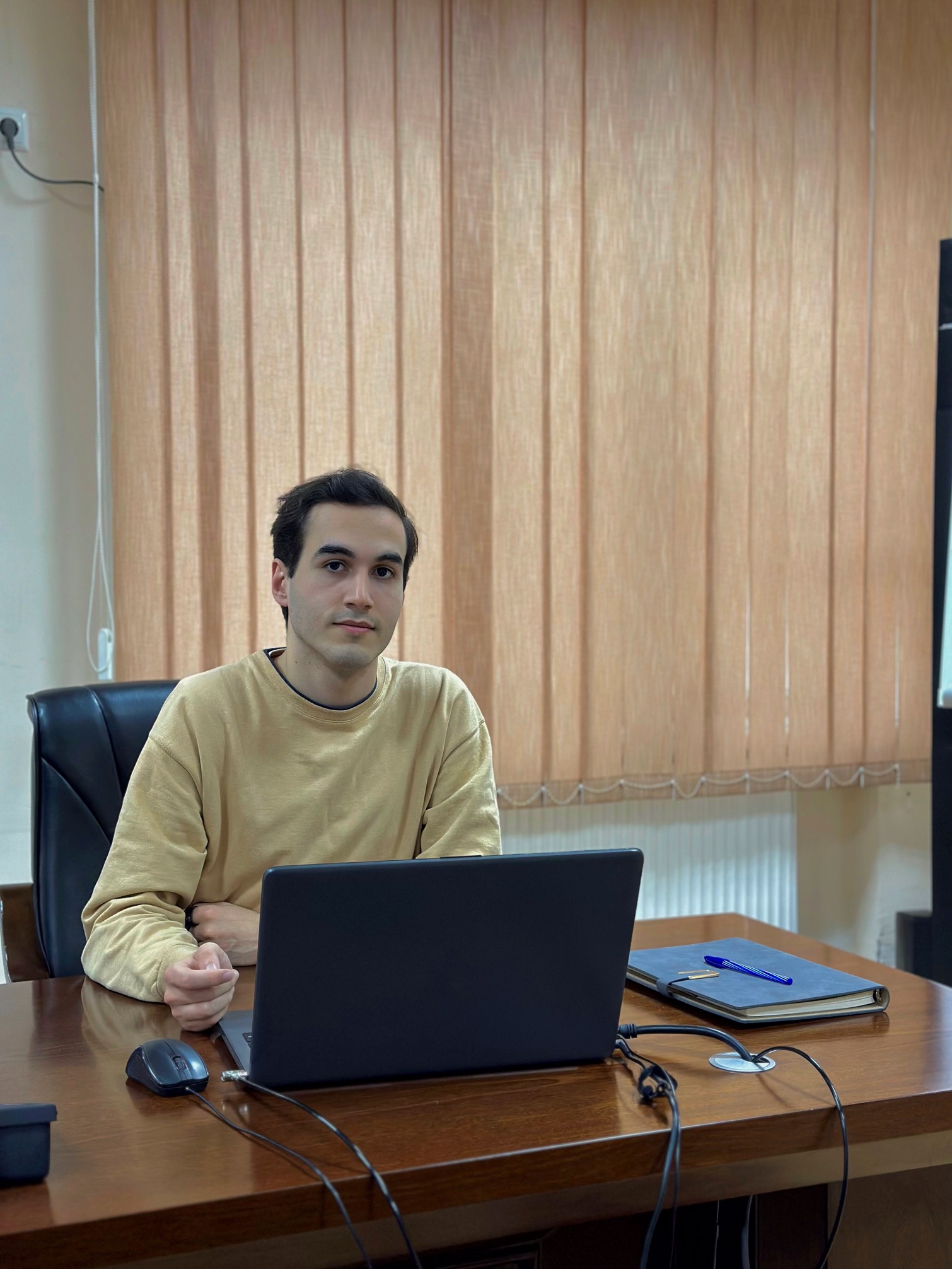 Nika Gogatishvili, Water Policy Division Specialist, Environment and Climate Change Department, Ministry of Environmental Protection and Agriculture of Georgia
Nika Gogatishvili, Water Policy Division Specialist, Environment and Climate Change Department, Ministry of Environmental Protection and Agriculture of Georgia
Water, the lifeblood of civilizations since prehistoric times, holds the key to our past, present, and future existence. As we think about its role in developing and progressing civilizations and sustaining ecosystems, we realize its global importance. Access to clean water is more than a necessity; it is a fundamental human right which is crucial to everyone's well-being and prosperity. It is more than just a resource, it is the very foundation of existence. Therefore, for me, water means one of the most cardinal prerequisites for peace. Especially due to escalating risks of gradual scarcity caused by climate change necessitates collaborative use of water. Hence, prioritizing effective water resources management is extremely important for reducing tensions and fostering harmonious relations among nations, as conflicts over water scarcity may paralyze global peace efforts. Considering that, extremely huge conflicts can be triggered by the improper management of water.
 Ulan Chortombaev, Professor, Doctor of Economics, Director of the Kyrgyz Scientific Research Institute of Irrigation under the Water Resources Service under the Ministry of Water Resources, Agriculture and Processing Industry of the Kyrgyz Republic.
Ulan Chortombaev, Professor, Doctor of Economics, Director of the Kyrgyz Scientific Research Institute of Irrigation under the Water Resources Service under the Ministry of Water Resources, Agriculture and Processing Industry of the Kyrgyz Republic.
According to the will of the Almighty Creator, the world was transformed directly by such an integral natural resource as water. Water is the source of life for the entire surrounding world. Thanks to the creator, water resources are a factor in changing and solving multilateral issues of the social origin of all humanity, and influence the very essence of man as a whole. For example, noting the value of water today in the field of agriculture, we can say that water is one of the main natural resources. With the rational and efficient use of water resources in all areas of the national economy, one can see firsthand positive food and environmental security results. For every person, water is the source and meaning of life!
 Saidrasul Sanginov, Deputy Chairman of the Executive Committee of the Central Kengash of the Ecological Movement of Uzbekistan
Saidrasul Sanginov, Deputy Chairman of the Executive Committee of the Central Kengash of the Ecological Movement of Uzbekistan
As you may be aware, March 22 is recognized as World Water Day. Environmental organizations around the World celebrate this day as one of the most significant environmental dates on the calendar. Typically, ecologists organize various events on all continents on this day, including conferences, scientific symposiums, seminars, training sessions, round tables, expert meetings, conversations with youth, and environmental campaigns. These events aim to promote respect for water resources and clear watercourses of household waste and silt. The Uzbekistan environmental movement was established in 2008 to prioritize the resolution of issues related to water resources. Due to the severe scarcity of water resources in many parts of Central Asia, the use of water resources for agricultural irrigation and drinking water supply should be given special attention to prevent conflicts among water users, both within and between countries. This year, World Water Day is themed "Water for Peace" to emphasize the importance of promoting peace through access to water resources. The Republic of Uzbekistan is located in the heart of the Central Asian region, and it relies heavily on the water resources of the transboundary river basins of the Amu Darya and Syr Darya. Therefore, following the provisions of the Helsinki and New York Conventions on transboundary waters, it is important to ensure a fair and reasonable use of these resources, taking into account the interests of all riparian countries. Representatives of the Ecological Movement of Uzbekistan are partners of many international organizations that work in the field of water resources, such as GWP, IWMI, and ICWC, among others. They regularly take part in important international events, such as world water forums, conferences, seminars, and meetings. Water issues hold a significant priority in the plans of the Eco-Movement, and they are discussed during more than 30 environmental events, such as World Wetlands Day, International Day Against Dams, International Earth Day, and International Climate Day. These events engage young people to increase their environmental knowledge, especially about water resources and the importance of respecting them, as well as the coordinated use of transboundary waters to strengthen peace in our region. The Eco-Movement places great importance on improving the environmental culture of the population, particularly in caring for water. Several methods are employed, including meetings in mahallas and educational institutions, environmental competitions and events, hashars for planting tree seedlings under the national project "Yashil Makon" ("Green Space"), round tables, and training sessions for environmental activists. The environmental movement, which is a member of the Climate Network of Civil Society Organizations of Central Asia, organized the National Climate Network of Uzbekistan, at whose training under the motto “Water for the World” the issues of the relationship between climate change and the dynamics of changes in water resources in the Central Asian region are discussed. Understanding the exceptional significance of the thesis “Water for the World” in the context of worsening water problems and increasing turbulence in world events, the Eco-Movement strives to use all available means to promote reasonable, fair, and coordinated management of water resources in Central Asia for the sake of peace and well-being of the inhabitants of the region.
